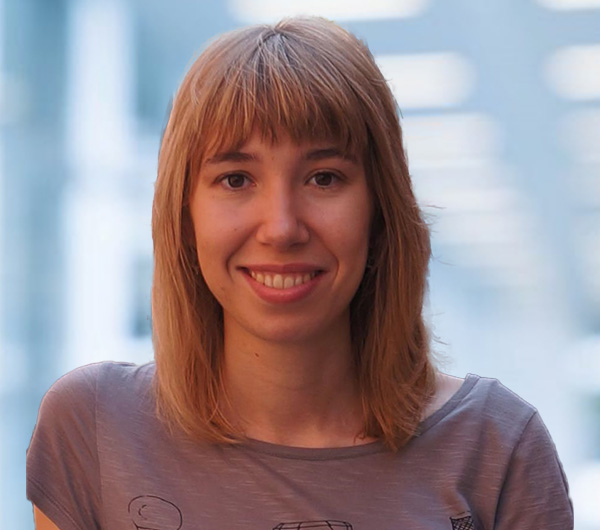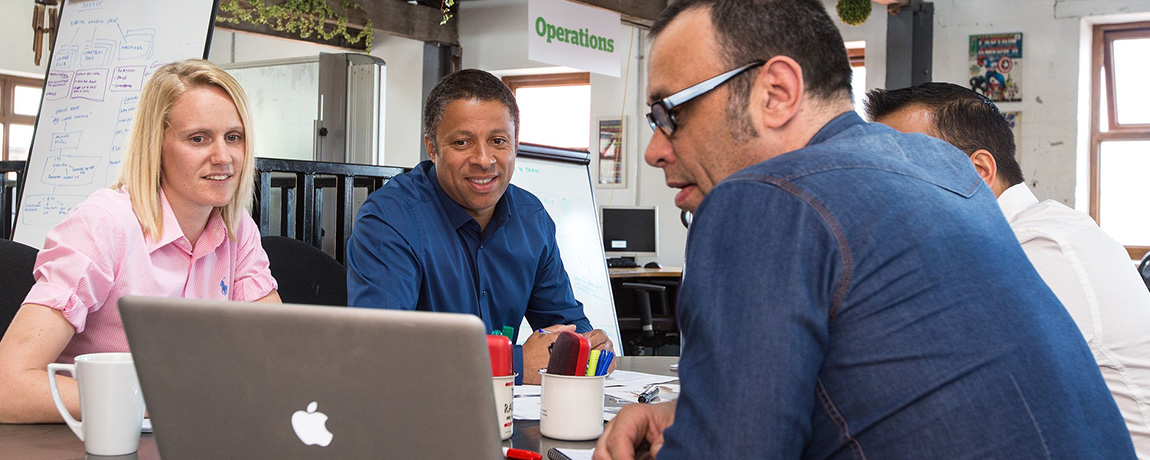Special Sessions
IEEE INDIN 2023: Call for Special Session proposals
To enhance the technical program and focus on specific topics and areas, INDIN 2023 will include special sessions, in addition to the regular tracks. Special sessions can cover subjects or crosssubjects belonging to the topics of interest, or novel topics related to the ones identified within the topics of interest. Special sessions can also have the drive from specific Research & Innovation projects or clusters of projects.
Accepted special session proposals
Industrial cyber-physical systems (ICPS) are enabling real-time perception, dynamic control, and information services for complex industrial processes and scenarios. The increasing demands on safe and reliable operation, as well as scalable design of large-scale industrial plants against cyberattacks, have facilitated the advancement of novel approaches to anomaly detection and diagnosis from multiple disciplines (e.g., communication, control, computer science). Among the many open scientific questions towards improved safety of ICPS, this Special Session starts from a systems and control perspective, and is especially interested in novel fault diagnosis (FD) and attack detection system design schemes, algorithmic approaches, solutions, and real-world application examples from research groups worldwide. We welcome both academic researchers and industrial practitioners to submit their new ideas, findings, approaches, frameworks, tools, or case studies to this Special Session. This SS also provides a forum to discuss the vital issues, challenges and possible future trends which are closely related to safety designs against faults and attacks in ICPS.
Topics of the Session include, but are not limited to:
-
Data-driven residual generator design
-
Multivariate statistical analysis-based and subspace-aided approaches
-
Plant-wide process monitoring and fault diagnosis
-
Monitoring/control performance degradation evaluation
-
Performance-supervised and performance-oriented FD approaches
-
Explainable artificial intelligence (XAI) for FD of complex industrial systems
-
Security issues in data-driven fault diagnosis
-
Detection of deception/concealed attacks
-
Detectability of attacks in industrial cyber-physical systems
-
Online and real-time implementation with practical applications
-
Other topics that are closely related to the scope of the SS
Download the complete SS Call for Papers.
Machine learning (ML) applications promise to enhance industrial processes in terms of availability, yield, and safety. Though many ML models fail after a short pilot phase, very few are actually used over the long term. One of the biggest challenges in using ML for industrial applications is the struggle to incorporate domain knowledge and build trust in ML models. Two strategies for resolving these issues are explainable artificial intelligence (XAI) and interactive machine learning. However, these methods face unique difficulties in industrial applications with high-dimensional, noisy, and severely unbalanced data. In order to address this challenge in the industrial domain, this special session will examine techniques and application examples for interactive learning and explainability. This will help to put the process and domain experts at the forefront of the ML development process. Contributions that can clarify the difficulties of using such methods in the industrial setting are also welcome.
Topics of the Session include, but are not limited to:
-
Interactive data labeling for industrial applications.
-
Industrial process simulation for generating (labeled) data for ML.
-
Active ML in industrial applications.
-
Human–AI interactions and interfaces in industrial applications.
-
Trustworthy AI for industrial applications.
-
Industry specific methods and approaches for ML model validation.
-
Industry specific visualizations for XAI explanations.
-
Industrial applications of XAI methods (e.g., LIME, SHAP, or model specific).
-
Explanatory user interfaces and human-computer interaction (HCI) for XAI.
-
Self-explanatory agents and decision support systems.
-
XAI for planning and decision-making.
-
Causal reasoning and causal explanations for monitoring and fault diagnosis.
Download the complete SS Call for Papers.
Model-based approaches are often used to handle the complexity of cyber-physical systems. As such, they are regarded as some of the core methods of artificial intelligence. In multiple disciplines the research community is concerned with the modelling of systems and their transfer in industrial applications. Within the different use cases, models can be created using a wide variety of approaches such as data-driven models, first-principles models, qualitative models, or hybrid models. Data-driven models are learned from process data and usually represent the normal working behaviour or a select number of fault types. First-principles models are usually created by experts and encompass lots of design-time knowledge. Qualitative models are more abstract than first-principles models, but thus must trade ease of use against accuracy. Hybrid models attempt to fuse expert knowledge with information gained from data, thus combining the benefits of both types of modelling. All of these approaches have their advantages and disadvantages. It is still highly important to research models which are practical and at the same time generalise to many cyber-physical systems, especially for tasks such as fault diagnosis and reconfiguration. This special session shall bring together researchers to discuss methods, limitations, and research directions that help users to create accurate and usable models for the tasks of fault detection, fault diagnosis, and reconfiguration in industrial applications.
Topics of the Session include, but are not limited to:
-
Learning of Causalities
-
Model Transfer between Systems
-
Fault Diagnosis
-
Hybrid Modelling
-
Reconfiguration
-
Automated Model Learning
Download the complete SS Call for Papers.
Drought, population growth, energy use, land use, socioeconomic changes, and a shifting climate increase water demand and exacerbate pressure on water, energy, and food infrastructure. Therefore, it is critical to re-think how energy is produced and consumed in the water and food sectors. Critical thinking is particularly relevant in the industrial sectors, which are responsible for 25.3% of the final end-use of energy, and 40% of the total water abstractions in the EU alone. Historically, interactions between water, energy, and food have been explored only at the macro-scale, considering only city-to-national-to-international inter-dependencies of the Water-Energy-Food Nexus (WEFN). This approach has proven particularly ineffective in power generation (both traditional and renewable) and several industries such as manufacturing, mining, and agriculture. Adopting renewable energy technologies such as Renewable Energy Sources (RES) and Distributed Energy Resources (DER) can have substantial positive spill-over effects in the water and food sectors. However, the state-of-the-art is very limited when it comes to understanding the roles that RES and DERs can play in the WEFN. This special session aims to provide a platform for researchers and participants from academic and industrial sectors to report recent research findings and industrial applications concerning the role of RESs and DERs in the Water-Energy-Food Nexus.
Topics of the Session include, but are not limited to:
-
WEFN Monitoring and Use of Machine Learning
-
Integration of RES and DERs in the WEFN
-
Human Factors in the WEFN
-
User Experience and WEFN Visualization
-
Public Datasets
-
Standards for Data Sharing and Re-use
-
Decision-Making Tools
-
WEFN Integration in Industrial Buildings
-
WEFN in Industrial Organization Activities
-
Optimization Considering WEFN Global Vision
Download the complete SS Call for Papers.
The development of Internet of Things (IoT) systems and accelerating innovation are being made possible by machine learning techniques. Real-time data generated by various sensors of IoT provides not only data for training the model but also helps in inference or predictions. The Open IoT cloud platform provides a foundation for developing sizable IoT applications that rely on information obtained from an intricate network of sensors and intelligent devices. The implementation of such a framework faces many difficulties, one of which is the need to satisfy the Industrial Informatics-based applications' requirements for IoT data and services quality of service (QoS) in terms of energy efficiency, sensing data quality, network resource consumption, and latency. The INDIN-2023 AAICT Special Session is devoted to novel and excellent submissions. The following subjects are covered by the AAICT 2023; however, they are not restricted to them.
Topics of the Session include, but are not limited to:
-
Design an efficient method for medical images super-resolution in IoT
-
Machine-Learning and Artificial Intelligence for Traffic/Quality of Experience Management in IoT
-
Hybrid Intelligent Models and Applications for IoT in Industrial applications
-
Nature-Inspired Smart Hybrid Systems for IoT Context-Aware Systems
-
Design and Evaluation of Energy Efficient Networks and Services in IoT
-
Machine learning and Data Analytics and Decision Automation in IoT for Industry
-
Knowledge-Based Discovery with Evolutionary Algorithms for QoS in IoT devices Fuzzy Fusion of Sensors, Data and Information
-
Meta-Heuristic Algorithms for IoT and wearable Computing
-
Hybrid Optimization Methods Emerging real-world and theoretical applications of IoT in Industry
-
Innovative Deep Learning Architectures/Algorithms for Time Series Data and IoT
-
Neural network modelling, analysis and synthesis techniques in ubiquitous communications
-
Multi-Objective IoT System Modelling and Analysis—Performance, Energy, Reliability,
-
Robustness
-
Modelling and simulation of large-scale IoT scenarios and IoT standardization
-
Machine learning for IoT and sensor research challenges: the battery of sensor, routing, prediction of nodes etc.
-
Quality aspects in the IoT (e.g., runtime dependability, assurances, validation, verification, privacy, security)
-
State-of-practice, experience reports, industrial experiments, and case studies in the IoT
Download the complete SS Call for Papers.
The prevalence of computation cores integrated with physical processes boosts the developments of autonomous intelligent robots, which are tangibly interacted with operational environments, humans and other robots as well as adapt to complex dynamical uncertainties leading to enormous potentials on targeted therapy and deep space exploration. Machine learning techniques steer the future innovations of smart structures, additive manufacturing, and intelligent sensing and control for autonomous robotics. On the one hand, the performance predictions and structure designs of robots could be refined by learning techniques. On the other hand, the cruces of capture, rotation and stretch of robot lie in deploying learning-oriented control strategies to endow the safety and resilience. Moreover, deploying flexible sensors and actuators of robots to fulfil the humanmachine interaction also relies on learning techniques. Albeit these aspects have gained great achievements in recent years, there still exist open issues to be further explored. This special session focuses on (but not limited to) learning-based design, fabrication, and control for robotics. Both academic researchers and industrial practitioners are welcomed for technical submission including novel methods, discussions, and application experiments to this special session.
Topics of the Session include, but are not limited to:
-
Learning-based smart structures and metamaterials for robots
-
Learning-enhanced flexible devices and energy harvesting technologies
-
Learning-based visual localization and mapping for robots
-
Learning-based anomaly detection and life prediction for robots
-
Learning-based path planning and safe tracking for robots
-
Learning-based estimation and control for robots
-
Learning-based formal analysis and verification for robots
-
Learning-oriented microrobots and soft robots
-
Learning-oriented unmanned vehicles and transportation
-
Learning-oriented formation and cooperation control for robots
Download the complete SS Call for Papers.
Numerous industrial processes can be optimized in the context of Industry 4.0 by incorporating resilient and secure wireless technologies. Automated commissioning is conceivable through the use of radio systems, which enable flexible networking of systems with other machines and their environment. Today, sensor-actor systems, control and regulation of plants is carried out via wired systems, such as Ethernet, PROFINET, CAN or HART. Control tasks in particular place the highest demands on the communication system in terms of security, transmission robustness and latency, which in the state of the art can only be met by wired systems. However, the use of radio communication allows mobility and easier deployment in places that are difficult to access.
The organizers of this special session collaborate in the Industrial Radio Lab Germany (IRLG), which engages in research and development of current and future wireless technologies in industry.
We welcome both, academic researchers and industrial practitioners, to submit their new ideas, findings, approaches, frameworks or tools for handling these challenges in Industry 4.0 to this Special Session.
Topics of the Session include, but are not limited to:
-
Resilient & dependable industrial campus networks
-
Real time spectrum sensing & interference monitoring
-
Protection against active & passive environmental influences
-
Communication control co-design & cross-layer design
-
Coexistence Management
-
Artificial intelligence in industrial communications systems
-
IT and network security
-
Applications and requirements for industrial radio
-
AAS for (wireless) communication networks
-
Digital Twins including communication networks
Download the complete SS Call for Papers.
Machine learning methods often assume the availability of large amounts of data, i.e. Big Data. However, the reality in industrial and various other real-world applications is that data is not always available in sufficient or satisfactory quantities. Although technical systems generate an increasing amount of data as integrated sensors become more available, measured data is often repetitive and contains the same information repeatedly, which only creates the illusion of Big Data. Such situations are summarised under the term data scarcity or Scarce Data. Data are often scarce because of technical limitations of sensors, an expensive labelling process, or rare concepts, such as machine faults, which are hard to capture.
The goal in dealing with Scarce Data must nevertheless be to obtain as much information and as much knowledge as possible from the little data that is available. Approaches to addressing data scarcity comprise data-efficient algorithms and methods for enabling data-hungry algorithms to be used on Scarce Data. Various methods have been devised and proposed for highly complex models that are intended to be applicable to scarce data, such as data augmentation or transfer learning. Data scarcity is often only implicitly taken into account by extending and adapting existing algorithms. In contrast, information fusion methods specifically expect data to be uncertain due to scarcity (as well as other data imperfections). Uncertainties based on data scarcity are explicitly modelled, quantified, and considered.
This special session aims to discuss and advance machine learning and information fusion methods that are able to deal with scarce data. Contributions in both areas are welcome. Potential application areas include all forms of technical systems and range from predictive maintenance and analysis, quality management, product design, assistance systems, optimisation, and computer vision.
Topics of the Session include, but are not limited to:
-
Algorithms for sparse data handling
-
Data-efficient Machine Learning Algorithms
-
Machine Learning in the context of scarce data
-
Sustainable Artificial Intelligence in the context of scarce data
-
Augmented and Transfer Learning
-
Fast Learner systems
-
Information Fusion in the context of scarce data
-
Multi-sensory systems for data acquisition
-
Uncertainty modelling
-
Optimisation under epistemic uncertainty
-
Informed Machine Learning for uncertainty reduction
-
Data Gap Analysis
-
Cyber-Physical-Systems for scarce data
-
Hardware-optimised data systems and accelerators
Download the complete SS Call for Papers.
Edge computing has emerged to collaborate with cloud computing, with low transmission latency, physically short distance to users, and relatively high privacy protection. The conceived user densification towards 6G brings challenges and opportunities simultaneously, for the future edge computing development. Meanwhile, we have witnessed the proliferation of artificial intelligence (AI) in 5G, which has been discussed to achieve the targeted scenarios of 5G, i.e., enhanced mobile broadband (eMBB), ultra-reliable and low latency communication (URLLC) and massive machine-type communications (mMTC). The success of AI leads it to being pervasive, and dominant towards 6G-based automation.
Edge computing has been widely acknowledged to motivate pervasive AI, supporting emerging industrial scenarios. In particular, the discussion of Industry 5.0, covering diverse domains such as supply chain, transportation, healthcare, etc., has also been raised, emphasizing the unachieved goals of the development of Industry 4.0, towards human-centric and sustainable industrial activities, which will highly rely on edge computing-based pervasive AI.
This Special Issue focuses on tackling the challenges brought by pervasive AI and edge computing technologies, considering the emerging applications and corresponding requirements towards Industry 5.0.
Topics of the Session include, but are not limited to:
-
Theoretical modeling, analysis and development of edge computing-based AI technologies
-
Network configuration, virtualization, and protocol for edge computing towards Industry 5.0
-
Embedded AI in edge computing for Industry 5.0
-
Security and privacy for edge computing
-
Emerging industrial applications relying on edge computing and pervasive AI (e.g., healthcare, transportation, supply chain, etc.)
-
Integrated testbed and case studies with data analytics with edge computing and pervasive AI for Industry 5.0
Download the complete SS Call for Papers.
This Special Session has its focus on methods and tools for the development and operation of AIbased solutions in industrial automation. Hence this Session invites contributions not only on AI methods themselves, but also on their integration in a Systems Engineering context. There are many prominent examples for Artificial Intelligence and Machine Learning in Factory Automation. But only a fraction of the successful prototypes becomes established into long-term use. The community for “AI Systems Engineering” develops methods and tools to professionalize the use of AI methods in an engineering context. The target audience include systems and application engineers, computer scientists, AI experts and operators of AI-based solutions.
Topics of the Session include, but are not limited to:
-
Methods and tools for the systematic development of AI-based solutions in industrial automation and Systems Engineering contexts
-
Performance estimation for AI components during the systems design phase
-
Integration of prior engineering knowledge with data-driven methods
-
Achieving trustworthiness and explainability of AI in critical systems
-
-
Methods and tools for the (long-term) operation of AI-based solutions in industrial automation
-
Runtime supervision of AI-based solutions
-
Robust AI with respect to drifts and distributional shifts
-
Human-machine interfaces
-
-
Standardization efforts for the use of AI in engineering environments
-
Response to regulatory and legal frameworks of AI-based systems (such as the European AI Act)
-
Cross-company Data Spaces and their use in AI
Download the complete SS Call for Papers.
With current developments in the context of Industry 4.0, the field of automation technology is changing. The desire arises to no longer design monolithic production systems in a closed and proprietary way, but to ensure openness in terms of interoperability, interchangeability and data exchange without sacrificing aspects such as process reliability and security. Thus, in recent years, new approaches for open, secure and distributed automation architectures have increasingly emerged.
In this context, two major standardization activities came up in the process industry – the Open Process Automation Standard (O-PAS) and the Module Type Package (MTP). Also, other standardization efforts in this direction can be recognized, that already have or will have an impact on future automation architectures. Examples are the Namur Open Architecture (NOA), from process industry as well, Universal Machine Technology Interface (UMATI) and the Asset Administration Shell (AAS) in the manufacturing industry, OMAC PackML in the field of packaging or OPC UA for Machinery for the entire mechanical engineering sector. In addition, lots of research projects deal with this topic. High-profile examples are the BaSys projects and the Arrowhead Framework.
Even though this variety of activities originated from different backgrounds and pursue different objectives in detail, they all serve overlapping ideas in the area of open automation architectures. An exchange between the various groups of people behind them is therefore existential and partly already in progress. Only if this exchange is practiced, the various concepts can benefit from each other and mesh as well as possible in the future.
The goal of this special session is therefore to provide an international platform for the topic of open, secure, and distributed automation architectures. We invite national and international researchers from the above mentioned or similar initiatives to exchange ideas, make new contacts and share their work and insights here in Lemgo.
Topics of the Session include, but are not limited to:
-
Cross-industry applications of open automation architectures: process industry, discrete industry, intralogistics, ships/marines, energy industry, …
-
Industry-specific contributions to the standards: bio-pharmaceutical, logistic areas, dairy, …
-
Conceptional comparisons: Open Process Automation Standard, OMAC PackML, OPC UA for Machinery, UMATI, Asset Administration Shell, Namur Open Architecture (NOA), …
-
Life cycle and scalability: engineering, operation / laboratory, piloting, production, …
-
New technologies in the context of Modular Automation: Microservice architectures, micro frontends, method-based orchestration, low code programming/configuration, …
Download the complete SS Call for Papers.
Parallel computing platforms have revolutionized the hardware landscape by providing high-performance, low-energy, and specialized (viz. heterogeneous) processing capabilities to a variety of application domains, including mobile, embedded, data-center and high-performance computing. However, to leverage their potential, system designers must strike a difficult balance in the apportionment of resources to the application components, striving to avoid under- or overprovisions against worst-case utilization profiles. The entanglement of hardware components in the emerging platforms and the complex behavior of parallel applications raise conflicting resource requirements, more so in smart, (self-) adaptive and autonomous systems. This scenario presents the hard challenge of understanding and controlling, statically and dynamically, the trade-offs in the usage of system resources, (time, space, energy, and data), also from the perspective of the development and maintenance efforts.
Making resource-usage trade-offs at specification, design, implementation, and run time requires profound awareness of the local and global impact caused by parallel threads of applications on individual resources. Such awareness is crucial for academic researchers and industrial practitioners including the broad domain of Industrial Informatics. This special session is aimed at addressing the issues, opportunities, and challenges in resource awareness in the broad area of industrial informatics.
Topics of the Session include, but are not limited to:
-
Resource discovery, measurement, monitoring, controlling, and the multiobjective trade-offs that are applicable in software or computer engineering and system usage in the field of industrial informatics.
-
Resource awareness in different domains and sectors such as (but not limited to) industry 4.0, smart manufacturing, adaptive and self-managing systems.
-
Topics related to any kind of resources (time, energy, space, data, effort, safety, availability, etc.) and their utilization in development and usage of systems in our environment.
-
Software engineering aspects in resource awareness such as software analysis, design, and development, testing (quality) and maintenance operations.
-
Usage of state-of-the-art systems and software engineering methodologies such as model-driven software engineering in realization of techniques for resource awareness.
-
Artificial intelligence, machine learning and evolutionary computing for realization of resource awareness (e.g., pros and cons, critical case studies)
-
Economics and resource awareness in the context of industrial informatics
Download the complete SS Call for Papers.
The application of Blockchain is enormous and is revolutionising the energy market. It is an efficient way of meeting the consumption requirement with the best possible way of energy generation and can also be used to establish a hierarchy of priorities in selecting the sources of origin. This accelerates the process of renewable energy certification and helps in automating with a greater degree of traceability. Blockchain also guarantees the transparency and security of the transaction, which remains permanently recorded, allowing the stakeholders to verify the results at any point in time. This also makes it possible to work under smart contracts which are performed automatically when both parties fulfil the agreed terms, thereby cutting out intermediaries and simplifying the process. This reduces costs and increases privacy. Blockchain is a key tool to speed up the process of decarbonizing the economy, as it makes transactions transparent, secure, and efficient, which incentivizes the production and consumption of 100 % renewable energy. On the other hand, the applications of Artificial Intelligence (AI) is well-known in almost all the industries and is being explored heavily in the fields of smart grid and electric vehicles (EV) also. AI, along with intelligent Machine Learning models can help the energy industry enormously with applications such as predictive analysis for the energy grid, battery health management for the EVs, intelligent demand response, estimating renewable energy generations, developing dynamic pricing mechanisms, etc. Through this special session, we encourage the prospective authors to discuss their innovative ideas, potential applications, and state-of-the-art research findings that would be helpful in adapting Blockchain and AI based energy management systems and their applications in smart grid and intelligent transportation systems.
Topics of the Session include, but are not limited to:
-
Blockchain and AI for renewable energy resource management
-
Blockchain and AI for grid management
-
Blockchain and AI based demand response
-
Blockchain for energy trading
-
Blockchain based security and privacy management for energy data
-
AI based predictive analytics for energy management in smart grid
-
AI based charge scheduling management for electric vehicles
-
AI based intelligent battery health management for electric vehicles
-
Blockchain for EV charge management
-
Performance verification of Blockchain protocols land AI models in energy optimization
Download the complete SS Call for Papers.
Organization of special sessions

Piotr Gaj
Silesian University of Technology, Poland

Svetlana Girs
Mälardalen University Sweden, Sweden

Yannis Gialelis
University of Patras, Greece
If you are interested in organizing a special session, please follow the rules of special sessions organization below and contact special sessions chairs: Piotr Gaj ([email protected]), Yannis Gialelis ([email protected]), Svetlana Girs ([email protected]). Please note the important dates for special session proposals.
Please use our template for Special Session proposals.
“The best way to predict the future… is to invent it”
Alan Kay
Rules for organization of special sessions
Prospective organizers of a Special Session (SS) must consider that:
-
An individual can be (co-)organizer of up to two SS.
-
An individual cannot be (co-)author of more than two papers submitted to the same SS.
-
Papers from organizers cannot exceed 60% of the contents of the SS.
In the preparation phase of the proposal, special attention shall be paid to the compliance of the proposals with IES rules for special sessions, to the qualification and experience of the suggested reviewers, and to potential support by Technical Committees. The evaluation phase of a SS proposal starts immediately after its submission, and publication on the conference website happens as soon as the SS is approved by the Chairs.
Once a special session is approved, it is the duty of the organizers to promote the special session among researchers and practitioners in the field and attract enough papers.
Papers submitted to special sessions will undergo the same review process as regular papers. The special session organizers are not involved in the management of the review process. Conversely, this process is under the control of the SS Chairs, that identify the most suitable Technical Track for each SS and liaise with the corresponding Track Chairs for the selection and assignment of reviewers. Specifically, each paper will be reviewed by a mix of reviewers from the Technical Track’s Program Committee and reviewers from the list recommended by the SS organizers.
Before starting the review process, SS organizers must explicitly declare papers which present a conflict of interest for them. A conflict of interest arises where the judgment about the quality of a paper is, or can potentially be, influenced by one or more of the organizers being (co-)authors, or by knowing or having relationship with some of the authors. To ensure independent reviews, any potential conflict must be immediately notified to the SS Chairs.
A minimum of 5 accepted papers with authors from at least 3 independent institutions (other than the organizers institutions) and two different countries is required for each session. If a session has too few papers, accepted papers will be allocated to the most fitting regular track. In the case of low organizational quality of a SS, the conference organizers will support the SS organizers with advice, but also reserve the right to cancel the given special session.
Important Dates
Submission of special sessions proposals: February 06, 2023 February 16, 2023
Notification of acceptance: max. 10 days after submission
Download
Download the call for special sessions


